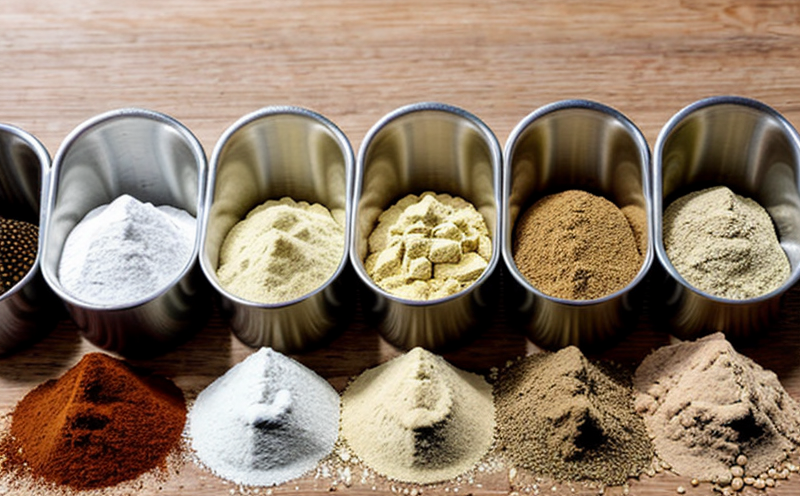EN 20781 Chromium Screening in Mineral Additives
The European standard EN 20781 specifies a method to screen chromium (Cr) content in mineral additives used for animal feed. This is crucial as excessive chromium levels can pose significant health risks, particularly to livestock and the humans who consume their products.
Chromium is an essential trace element that plays a vital role in glucose metabolism, energy production, and protein synthesis; however, it becomes toxic at higher concentrations. Feed additives are formulated with various minerals such as calcium carbonate, phosphates, or limestone to enhance nutritional value, but these must be free from harmful contaminants like hexavalent chromium (Cr(VI)). The standard is designed to ensure that feed manufacturers comply with this critical safety requirement.
The method outlined in EN 20781 involves several key steps. First, the mineral additive sample is prepared by drying and grinding it finely. Then, a known weight of the ground sample is dissolved using nitric acid. The solution is filtered to remove any insoluble matter before being analyzed for chromium content.
The analytical technique used is inductively coupled plasma-optical emission spectrometry (ICP-OES). This method offers high precision and accuracy, making it suitable for detecting trace amounts of chromium even in complex matrices. The detection limit specified by the standard is typically around 0.1 mg/kg, which is well below the permissible limits set by regulatory authorities.
Once the sample has been prepared and analyzed, the results are compared against the upper limit prescribed by EN 20781, which is 15 ppm (parts per million) for hexavalent chromium. If the concentration exceeds this level, further testing may be required to identify the source of contamination and determine appropriate corrective actions.
The importance of this screening cannot be overstated. Inadequate control over chromium levels can lead to several adverse effects on animal health, including kidney damage, increased oxidative stress, and reduced growth performance. Moreover, there are potential risks associated with transferring these elevated chromium concentrations through the food chain into human consumption.
Regulatory compliance is paramount for feed manufacturers operating within Europe or exporting products to EU countries. By adhering to EN 20781, companies demonstrate their commitment to maintaining high standards of quality and safety in their feed additives. This not only protects animal welfare but also ensures that the final food products meet international consumer expectations regarding purity and wholesomeness.
Implementing this screening process early in the product development stage allows manufacturers to identify potential issues promptly, thereby minimizing costs associated with recalls or rework. Additionally, it fosters trust among consumers who value transparency about the ingredients used in their pet’s or livestock’s diet.
Industry Applications
The application of EN 20781 extends beyond just feed additive manufacturing; it also impacts several other sectors within agriculture and food production. For instance, veterinarians use this standard when advising farmers on appropriate dietary supplements for their animals to ensure they receive the correct balance of nutrients without harmful contaminants.
In research settings, scientists employ EN 20781 to study how different levels of chromium affect animal behavior and health. This information helps refine formulations aimed at optimizing productivity while minimizing risks. Furthermore, feed additive distributors rely on this standard during quality assurance checks before releasing products into the market.
- Animal Nutrition: Ensuring that feeds contain optimal levels of essential minerals without harmful chromium content.
- Veterinary Services: Advising clients about safe dietary practices for pets and livestock.
- Agriculture Research: Investigating the effects of various mineral combinations on animal health and performance.
Eurolab Advantages
At Eurolab, we pride ourselves on offering comprehensive testing services that meet international standards like EN 20781. Our experienced team of analysts uses state-of-the-art equipment to provide accurate and reliable results every time.
We offer several benefits that set us apart from our competitors:
- Expertise & Experience: Our staff includes highly qualified professionals who have extensive experience in performing these types of analyses.
- Up-to-Date Equipment: We invest heavily in acquiring the latest technology, ensuring that all our methods remain current with industry best practices.
- Comprehensive Reporting: Every test comes complete with detailed reports providing not only numerical values but also interpretative insights.





